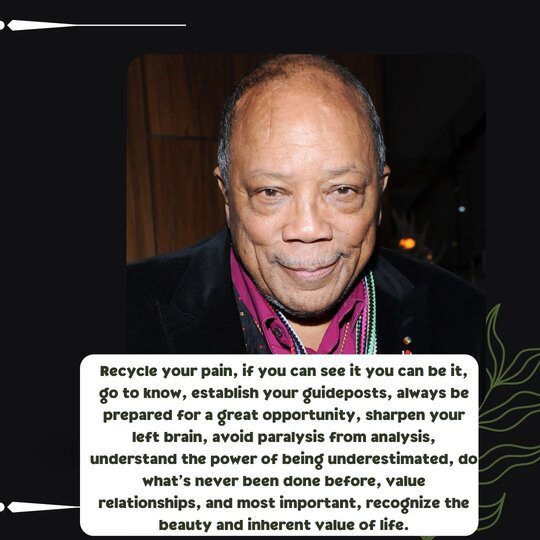Somedays will be more challenging than the rest, you will not want to get out of bed in the morning, and you will feel tired of all the challenges you are going through, but you have to keep showing up day in and day out. Success is not guaranteed, but struggles and pain are. Whatever would go wrong would eventually go wrong at the worst time expected time. No one has a pain-free life; the pain is temporary; no pain, no gain, no thorne, no throne, no gall, no glory. Adversity introduces a man to himself; you get orange juice if you squeeze an orange. Life is going to happen to you at some point: job loss, health scare, divorce, childhood trauma, depression, etc.
American writer James Baldwin asserted: “Not everything that is faced can be changed. But nothing can be changed until it is faced”. Going through any painful situation is extremely tough and draining but every situation has got a lesson inherent in it although it is hard to get the message when we are going through the storms of life. Don’t let the pain lessen you, learn the lessons. Don’t get bitter, get better. Don’t stay stuck in the mess, get the message. Embrace the struggle by recycling your pain, don’t let success get into your head, and do not let failure get into your heart. Don’t get too low and do not get too high. Everything is going to be alright.

American record producer Quincy Jones is an 80-time Grammy nominee and 8-time Grammy award winner who shared the insights, and strategies that have helped him lead a life of creativity. In his memoir, 12 Notes: On Life and Creativity 1, Quincy breaks down his principles, approach to life, and philosophies, along with standout stories from his journey in twelve chapters called “notes”.
In the midst of adversity, it’s easy to let disappointment or anger take center stage, but I have found that my purpose is so much greater than my problems, although it’s incredibly easy to place an emphasis on the latter.
Note A: Recycle your pain
With the inevitability of hardship in this often broken world, it’s important to understand what fills your voids and also where you are projecting yours. The moment you slip into a victim mentality, not only are you faced with having to deal with external problems, but you’ve also given yourself a whole new set of internal problems that will only stunt your growth as both a human and a creative being. You don’t have to let the anguish that has permeated pockets of your life completely take over.
Personal growth is just a journey from mind pollution to mind solution. In other words, you have to sift through the dirt of whatever situation it is that you find yourself in, so that your future isn’t polluted before you’ve even had a chance to create it. Whether it’s a past trauma or a difficult family situation, mentally overcoming such challenges is often the most important first step in personal advancement.
I’m fortunate enough to have figured out that pain has a voice, and music is the method of escape for mine.
Post Traumatic Growth 2
In 1995, Dr. Lawrence Calhoun, professor of psychology at the University of North Carolina at Charlotte, coined the term “post-traumatic growth” to describe resilience that not just allows one to come back from a crisis but to come back changed for the better. “It’s not about being resilient,” he says, “Resilience is when you get punched, stagger, and then jump right back up. Post-traumatic growth is different—when you stand back up, you are transformed.”
Well-known Buddhist nun Pema Chodron, who has contributed so much goodness to this world with her bestselling book When Things Fall Apart, speaks candidly about how her divorce catalyzed her spiritual awakening and, consequently, her life’s work. With humor and humility, she shares about the hatred that consumed her after her husband announced he was having an affair and wanted a divorce. At the time she was a schoolteacher, and raising two children from a previous marriage, which had also ended poorly. In the months that followed, she was filled with a bitter rage that egged her on to act out in mean-spirited ways.
Before this time, she’d known herself to be a warmhearted and optimistic person, and she felt ill prepared for this depth of darkness that consumed her with hate-filled fantasies of revenge and retaliation. The incessant and urgent nature of these destructive impulses forced her to actively seek solid ground upon which to safely stand.
Dabbling in various spiritual disciplines to try to find relief, she came upon an article written by meditation master Chögyam Trungpa that gave her a way to make sense of her experience. In it he claims that there is nothing wrong with negativity in and of itself, calling our darker emotions “a juicy and creative energy that can wake you up.” He asserted it’s the spin-off from negativity that poses the actual problem—the endless blaming and the constant raging. The energy-driving negativity, however, is not bad and can actually be helpful. This realization enticed her to begin a path of Buddhism.
Within a year she’d become a nun, and she has since gone on to help hundreds of thousands of people around the world to find peace and deeper contentment in life.
“Pain is a demanding taskmaster, and you’re going to have to tame her in order not to be taken out”
You and I should embrace discomfort for at least three reasons, whether we deliberately choose to or it simply happens to us. First, comfort is overrated. It doesn’t lead to happiness. It often leads to self-absorption and discontent. Second, discomfort is a catalyst for growth. It makes us yearn for something more. It forces us to change, stretch, and adapt. Third, discomfort signals progress. When you push yourself to grow, you will experience discomfort, but there’s profit in the pain. 3
I don’t think people should turn pain into positive energy because it’s the right thing to do—I think people should turn pain into positive energy because it’s the most effective way to realize your dreams. – Robert Refklin
Everyone in this life has experienced some kind of emotional pain. We all have had an “accident” in some form or fashion. Whether that be a motorcycle crash, the loss of a loved one, a divorce, family issues, losing your job, physical abuse, emotional abuse, and so on. It’s how you deal with that adversity that will determine who you will become. 4
Make friends with pain, and you will never be alone.—KEN CHLOUBER
- 5 Types Of Guilt You Are Going Through And 7 Steps To Stop Letting It Drain Your Energy | On Purpose with Jay Shetty – Peter Attia ON: Scientific Ways to Slow Down Aging & How Your Emotional Health is Impacting your Physical Health | On Purpose with Jay Shetty
All the best in your quest to get better. Don’t Settle: Live with Passion



Comments are closed.